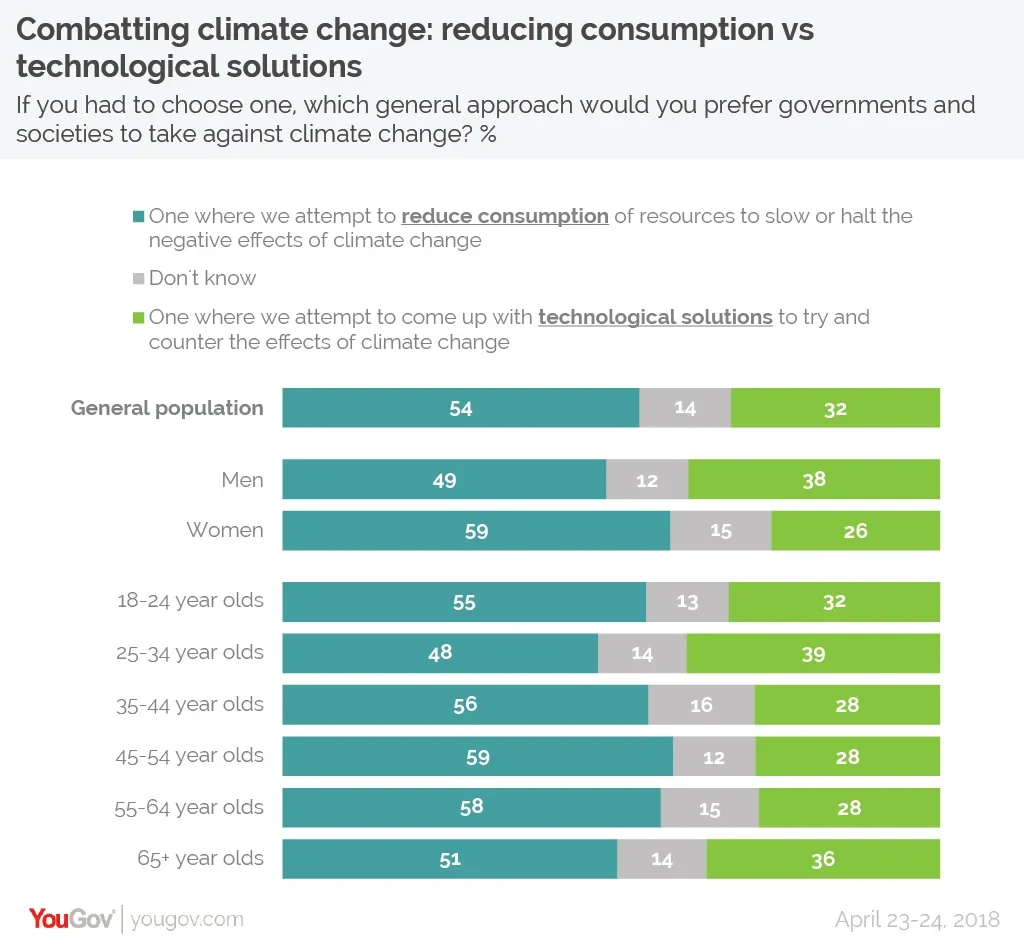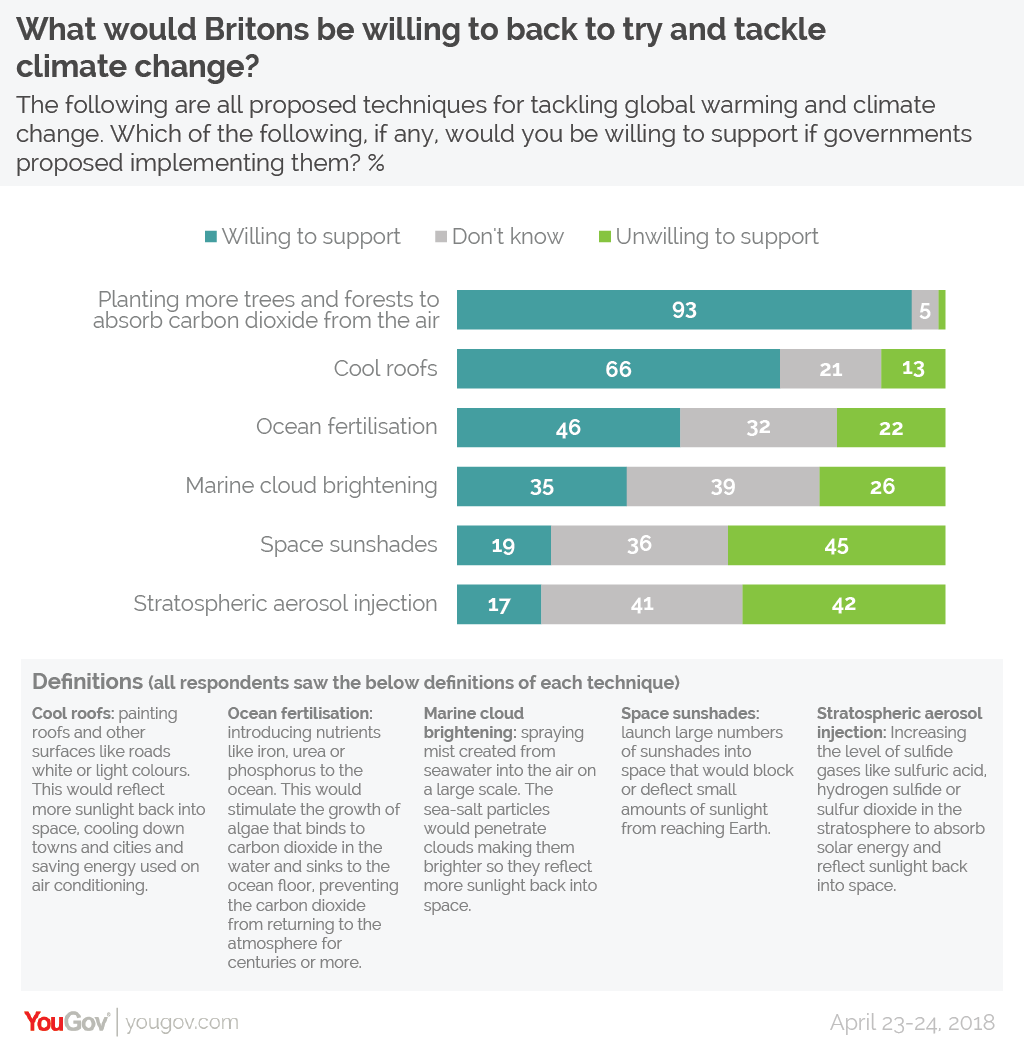One in three Britons prefer an approach that relies on technological solutions to counter climate change
A report of the Intergovernmental Panel on Climate Change on Monday is expected to advocate the use of technology as a vital component in attempting to keep global temperature increases to below 1.5oc.
Attempts to combat climate change have thus far centred around attempts to reduce consumption of resources and shift to cleaner forms of energy generation.
Newly released YouGov research reveals that, given the choice between backing a climate change strategy that involved reducing consumption of resources to slow or halt the negative effects of climate change and one that involves relying on technological solutions to counter the effects of climate change, the majority of Britons (54%) would opt for the former.

Only one in three Brits (32%) would prefer to focus on coming up with technological solutions to the problem. The remaining 14% say they don’t know which they’d choose.
Men are noticeably more likely to back a technological focus than women (38% vs 26%).
What radical approaches to combatting climate change would the public be willing to back?
The results form part of the YouGov/V&A partnership for their exhibition The Future Starts Here, part of which asks “should the planet be a design project?”. As part of the exploration of this theme, the survey also tested public support for several radical proposals that have been made by scientists for large scale climate engineering schemes.
As a basis for comparison, also included was a far less controversial proposal (expected to be made as part of the IPCC report) for the planting of more trees and forests to absorb carbon dioxide from the air. As it turns out, this would command near-universal support, with 93% of Britons willing to back such a policy.
Cool roofs
The only other policy that a majority of the public are willing to back is the “cool roofs” approach. This would involve painting roofs – and other surfaces like roads – white or light colours in order to reflect more sunlight back into space, therefore cooling down towns and cities and saving the enormous amounts of energy use on air conditioning. Two thirds (66%) of Britons would be willing to support making such a change, compared to only 13% who oppose.
Ocean fertilisation
One further policy has a plurality of support – so-called “ocean fertilisation”. This would see the introduction of large quantities of nutrients like iron, urea or phosphorus to the ocean. This in turn would stimulate the growth of algae that binds to the carbon dioxide in the water and sink to the ocean floor, preventing the carbon dioxide from returning to the atmosphere for centuries or more. Approaching half of Britons (46%) would be willing to support ocean fertilisation, more than twice the proportion who would oppose it (22%).
Marine cloud brightening
Marine cloud brightening involves the spraying of mist created from seawater into the air on a large scale. The sea-salt particles in the spray would then penetrate clouds, making them brighter and in turn causing them to reflect more sunlight back into space. While this approached is more supported than opposed (35% vs 26%), a larger proportion of people are unsure whether or not it is a good idea (39%).
Space sunshades
This approach would see the launching of large numbers of sunshades into space that would each block or deflect small amounts of sunlight from reaching Earth. Fewer than one in five Britons (19%) would be willing to support such a move, with this technology receiving the highest level of opposition (45%) of the six approaches we asked about.
Stratospheric aerosol injection
The final climate engineering project would involve increasing the level of sulphide gases like sulfuric acid, hydrogen sulphide or sulphur dioxide in the stratosphere to absorb solar energy and reflect sunlight back into space. Only 17% of Britons would support government attempts to implement such a strategy, while 42% would be unwilling to do so.
Photo: Getty












